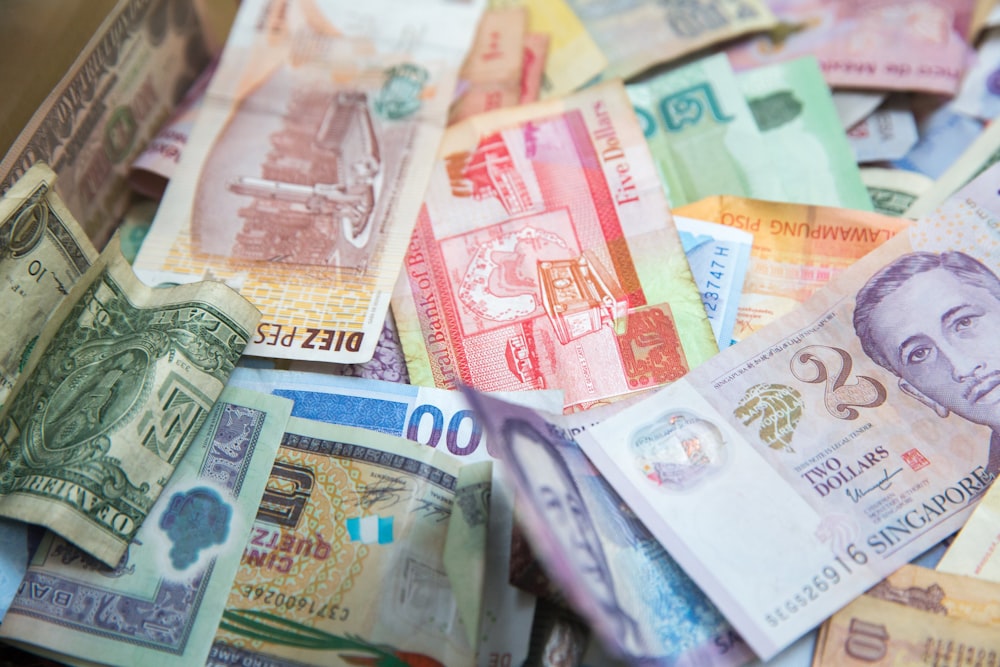
TL;DR
Singapore has quickly institutionalized the cryptocurrency market. Emphasizing a loose cryptocurrency regulatory framework and a free market atmosphere, it created an attractive environment for a large number of blockchain companies.
However, Singapore's status as a crypto hub has begun to falter as a series of crypto firms that set up shop there had gotten into liquidity issues, with regulators accusing the Singaporean government of failing to protect investors.
Since then, Singapore has been striving to set up a clear regulatory framework through ongoing regulatory improvements. It is primarily focusing on 1) addressing previously unseen regulatory uncertainties, and 2) re-establishing its position as a crypto hub with stronger investor protection policies.
Singapore, a Crypto Paradise
Singapore, renowned for its fervor for the blockchain market along with Hong Kong and Dubai, has carved a unique niche for itself. As one of the most agile countries, it incorporated the virtual asset market into its regulated ecosystem, reaping the benefits of being a pioneer in this area.
Beyond its active embrace of blockchain, Singapore's allure for blockchain firms stems from two factors. First, its corporate-friendly environment, including low corporate tax rates. Second, the nation's high purchasing power, which guarantees a fluid market. Due to these attributes, numerous blockchain companies have flocked to Singapore, earning it the nickname 'Crypto Paradise.'
Government policy history: Tightening loose screws
Singapore's approach to the virtual asset market offers intriguing insights. It was the fastest country to bring the virtual asset market under its regulatory purview. The Payment Service Act (PSA), effective in the country since January 2020, set a regulatory framework for virtual assets. This move cleared uncertainties around regulations, which in turn, invited a flurry of blockchain companies to set up base in Singapore.
However, from 2022, Singapore's standing as an Asian hub for virtual assets started to wobble. This was triggered by a series of bankruptcy cases among virtual asset companies headquartered there. Most notable cases were 'Terraform Labs' and '3AC', whose bankruptcy was a result of the Terra-Luna incident. As regulatory authorities, the Singaporean government faced criticism for their apparent inability to protect investors.
In response, Singapore pivoted its focus from fostering a vibrant market via loose regulations to strengthening its regulatory framework and risk management. This was seen as a clear sign of its commitment to reinforce its status as a hub for virtual assets.
Two primary aspects underscore Singapore's regulatory improvements. First, plugging the gaps in the existing regulatory proposals. Second, protecting retail investors through stronger regulations.
For instance, in April 2022, the Financial Services and Markets Act (FSMA) was passed, further tightening regulations around virtual assets. While the original PSA only required domestic virtual asset services to acquire licenses, the new FSMA expanded the scope to include offshore virtual asset service providers.
Furthermore, Singapore has exhibited a firm stance by prohibiting the use of virtual asset staking and lending services to retail investors for the purpose of investor protection. Through these measures, Singapore aims to rebuild its reputation as an Asian hub for virtual assets and prepare for the upcoming bull market by overhauling its legislation.
PSA license requirements: Tiered regulations by company size & type
Singapore primarily handles its digital asset regulation through the Payment Services Act (PSA), which is in turn supervised by the Monetary Authority of Singapore (MSA). Instead of having a specific licensing system for Virtual Asset Service Providers (VASP) like other countries, Singapore operates a comprehensive licensing system that incorporates other financial payment licenses. This is understandable when looking at the history of the PSA Act, as it is fundamentally a merger of the 'Payment Systems (Oversight) Act (2006)' and the 'Money-Changing and Remittance Businesses Act (1979)'. Through this act, Singapore has included virtual assets, newly defined as 'Digital Payment Tokens (DPT)', as a newly regulated entity by combining the contents of these two acts.
The act details three types of payment service related licenses: 1) Money Changer License, 2) Standard Payment Institution License, and 3) Major Payment Institution License. To conduct DPT operations, either a 'Standard Payment Institution' or 'Major Payment Institution' license is necessary.
The two licenses differ depending on the scope and scale of the payment services provided. The Standard Payment Institution License, intended mainly for small-scale operators, has a relatively low level of regulation making it easier and quicker to obtain. However, it has transaction volume and liquidity limits that cap the monthly average transaction volume at a maximum of 6 million Singapore dollars (SGD).
The Major Payment Institution License, intended for large-scale operators expecting high transaction volumes, requires the fulfillment of obligations imposed on the Standard Payment Institution License and faces additional regulatory requirements. Despite these strict regulations, it comes with the advantage of no liquidity limitations.
1) Minimum Capital
To conduct a digital asset business in Singapore, securing 1) minimum capital and 2) cash collateral requirement is necessary. These amounts and requirements differ by the type of license. A Major Payment Institution has a basic capital requirement of 250,000 SGD and a cash collateral deposit of 200,000 SGD(cash collateral deposit of 100,000 SGD is required for average transaction volume below 6 million SGD), totaling 450,000 SGD in preparation. On the other hand, a Standard Payment Institution only needs a basic capital of 100,000 SGD.
2) License Cost
Application for a digital asset license requires payment of 1) membership fees and 2) renewal fees. The Major Payment Institution License incurs an application fee of 1,500 SGD and an annual renewal fee of 10,000 SGD. The Standard Payment Institution License requires an application fee of 1,000 SGD and an annual renewal fee of 5,000 SGD.
3) Operational Staff Requirements
For a PSA license application, it's required to have 1) at least one permanent director who is a Singapore citizen/permanent resident, or 2) at least one non-executive director of Singapore nationality and at least one managing director with a Singapore Employment Pass (EP).
4) Transaction Eligibility Evaluation
Like Hong Kong, Singapore evaluates the knowledge of digital asset investors. Before providing DPT services, digital asset operators are required to ensure that DPT retail investors are fully aware of the investment risks.
5) Ban on Advertising
In January 2022, Singapore announced 'Guidelines for Digital Payment Token Operators', which state that DPT operators cannot advertise in public places like public transportation and bus stops, as well as broadcasting, portals, social media, etc. They can only promote their services through their own websites, apps, or official social media accounts.
Summary of Key Points
Much like Hong Kong, Singapore's focus is on protecting retail investors. Particularly due to the comprehensive regulation of financial payment services through the PSA Act, it can be seen that Singapore's digital asset license shows a level of qualification on par to a general financial license. In Singapore, the prohibition of DPT advertising demonstrates high levels of investor protection. Furthermore, with the prohibition of staking and lending services to retail investors, expectations are that Singapore's digital asset regulations will further evolve to focus more on investor protection. The minimum capital level in Singapore is also worth mentioning. Compared to Hong Kong's minimum capital of 5 million Hong Kong dollars, Singapore's is a quarter of that amount. This is considerably cheaper even compared to other countries and reflects Singapore's business-friendly policy. Considering the fact that the minimum capital required to establish a general corporation in Singapore is a mere one dollar, this outcome makes sense.
Tax Benefits: Tax Exemptions During Virtual Asset License Application Period
Singapore does not have a separate tax relief system for companies with digital asset licenses. However, with a basic corporate tax rate of 17%, Singapore is attractive enough for companies looking to enter. Moreover, Singapore provides a tax exemption benefit for the period from the application to the issuance of a digital asset license. This benefit could be extremely advantageous for startups who are beginning to build their digital asset business and for whom the long duration from application to issuance could be a significant burden. Considering that it takes a minimum of six months to apply and receive a digital asset license, this benefit is substantial. Even without tax benefits, Singapore's government maintains a business-friendly attitude, and it is expected that companies can receive governmental support in various other ways.
Singaporean market: Maturing with regulations
Since proposing virtual asset regulations, Singapore has consistently strived to improve its regulatory framework. Some critics argue these changes can create confusion among existing crypto businesses, potentially dampening Singapore's unique free market atmosphere, often dubbed a 'crypto paradise.'
However, others perceive these continual regulatory improvements as an opportunity. They can eliminate uncertainties that exist in regulatory blind spots, fostering a more robust market environment.
For teams looking to launch blockchain projects within Singapore, these clear regulations can function as a safety net in the dynamic crypto market. The framework may even facilitate smoother operations based on lower risk.
Additionally, given that Singapore's legislative approach fundamentally favors businesses, it's unlikely to lead to drastic regulatory shifts or extreme scenarios. Therefore, considering Singapore as a potential destination for crypto projects seems a reasonable decision.








